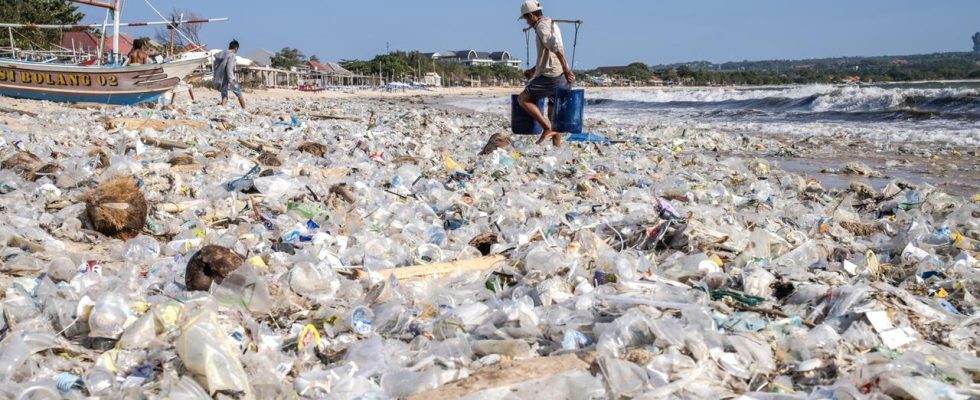The fact that garbage from the ocean washes up on Bali’s beaches is not a new phenomenon. But now the problem seems to be getting out of control. The population also bears responsibility for this.
Bali has been suffering from an enormous garbage problem for years. But the flood of rubbish that has overwhelmed many beaches and river banks in recent days is frightening even for the Indonesian holiday island – and is making headlines in local media and on social networks. The beaches Kedonganan and Jimbaran in the area around Kuta, which is popular with surfers, as well as the town of Pecatu with the famous “Dreamland Beach” were particularly badly affected, the newspaper “Bali Sun” reported.
Strong westerly winds regularly wash entire carpets of waste from the sea and ships onto Bali’s coast. The newspaper report continued that the garbage disposal team, together with volunteers, had already collected 100 tons of rubbish since Wednesday. And there are “lots more.”
Tourists take part Clean-up operations
Plastic waste is particularly difficult for people in Bali. According to “Bali Sun”, many holiday guests also take part in the collection campaigns on particularly dirty beaches.
Others who had dreamed of a vacation with picture-postcard beaches are disillusioned by the situation. “I’m in Bali right now – and there’s plastic everywhere on the beach and in the sea, from Jimbaran to Uluwatu,” wrote a disappointed vacationer in a Bali travel forum on Facebook: “Is there currently even a beach without plastic?”
Lacking Environmental awareness jointly responsible
Apart from meteorological events, many Balinese also lack the necessary environmental awareness, say environmentalists. Many residents simply throw their garbage behind their houses, into embankments and rivers. “We hope that the government will be more consistent in waste management and improve knowledge about it among school children,” said Giri Mariani, who organizes garbage collection campaigns.
According to the UN, Indonesia is the second largest plastic polluter in the world after China. “The country produces 3.2 million tons of uncontrolled plastic waste annually, of which about 1.29 million tons end up in the sea,” said a 2020 report from the United Nations Environment Program. With more than 274 million inhabitants, Indonesia is the fourth most populous country in the world and the world’s largest island state.

